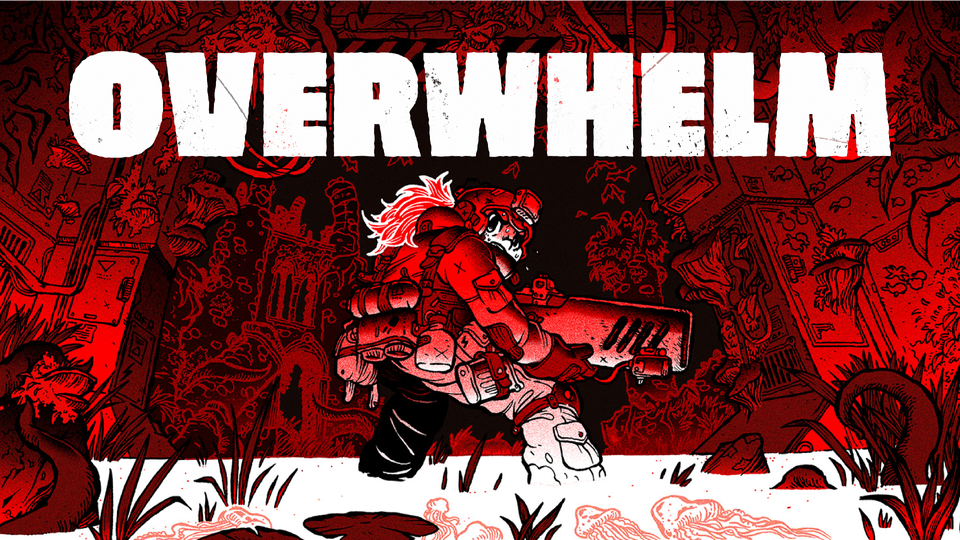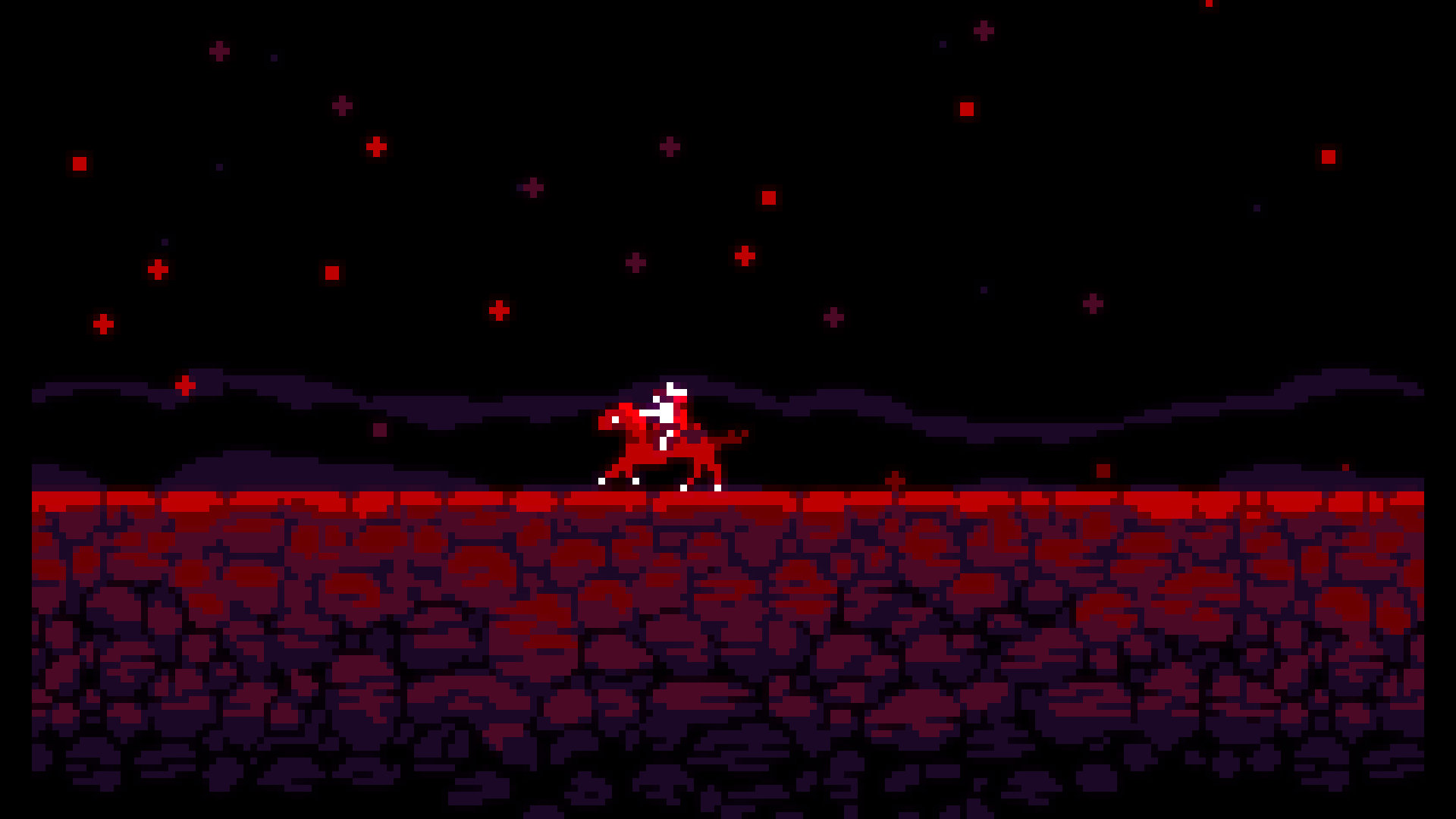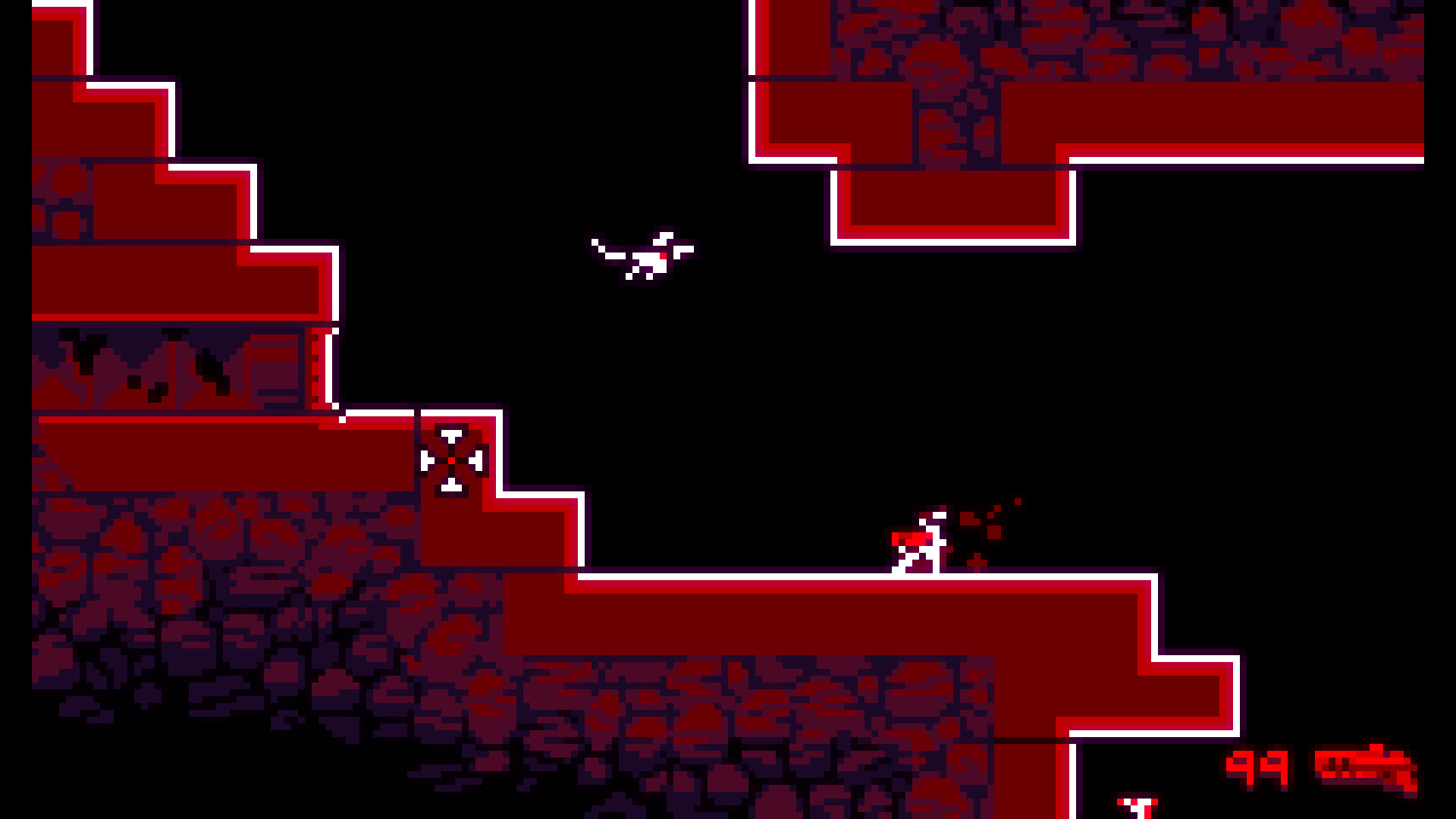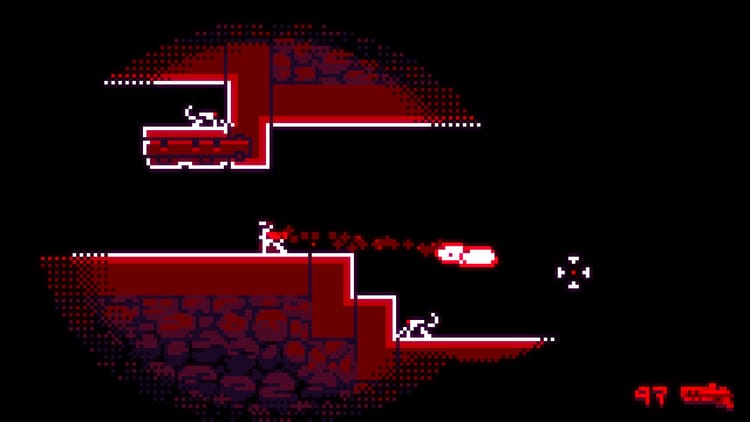The Poetics of Endurance

It’s important every now and then to play a game for which I am the least ideal player, like OVERWHELM. This act pushes me out of my comfort zone and forces me to reflect on what my core play styles or “personalities” are. For your reference, I’m primarily what the National Institute for Play refers to as The Storyteller. That play personality prefers narrative-driven games, or ones where you are part of the storytelling process. A lot of these games tend to be linear or have definitive end states if there are multiple endings. Playing games that are as difficult and technical as OVERWHELM are frustrating because their hidden subtitle is “An Exercise in Repetition”. That’s not quite accurate for Ruari O’Sullivan a.k.a. Randomnine’s subversive Metroidvania project, however. OVERWHELM is less about punishment and more about vindication. Vindication that sometimes even perseverance, that vanguard of individualist hope in particular, will fail. The stark declarative tone of the game’s opening points toward this mindset: “There is always a hive.” There’s no definitive win-state to be had, in the traditional sense. Your role as a “knight” is less savior than it is an emergency responder. It’s about adapting and coping under pressure, not optimization. Optimization is what the alien hive, a toxic systemic antagonist, has at its disposal.
One could say this style of procedural rhetoric stresses that one person on their own can’t fix society’s woes. An anti-hero’s journey, if you will. I believe that’s part of Randomnine’s MO, as he has mentioned on his website’ about page that he is “always trying to build complex games with interlocking parts; living systems that respond to you and take subtlety to manage.” This is certainly OVERWHELM in spades: with limited ammo, only three lives which don’t regenerate, and the hive evolving to receive power ups instead of your knight. Randomnine’s design philosophy isn’t strictly stoic, but something adjacent. The about page further states that while “life is tough and uncertain…All we can do is keep going, keep learning, keep rolling the dice, and fail over and over until we stop” (emphasis mine). While I might not be the ideal player in mind for the title, the game’s systems respect my time and effort.

There’s a certain poetic quality, in fact, that gameplay like this possesses. In literature poetic elements of the text (sometimes referred to as a text’s “poetics”) are the language, the structures, and the literary devices employed to give the reader a specific experience of that text. Game studies scholars like Alex Mitchell and his co-researchers Liting Kway and Tiffany Neo survey a number of theories of how gameplay can be poetic. Two poetic techniques that are compelling for games are defamiliarization of the player’s perception of gameplay and structuring game mechanics to persuade players to re-evaluate and alter their play style. Yes, OVERWHELM is more of a ludologist’s game than it is a narratologist one. But poetry doesn’t just focus on the structure of the text, it seeks specific emotional responses from us because of that deliberate organization of the text as well.
While Hades may be cut from a wholly different cloth than OVERWHELM, they do share some similar threads in their poetics. The former reimagines roguelikes as representing the many hells of intergenerational trauma and the potential paradises of breaking and remaking the cycle. It also explores intimacy via the many cycles it takes to truly get to know a person fully, whether friend, foe, or lover. The latter game takes the metroidvania genre and reduces it to its most recognizable mechanics of platforming, item management, strategic boss fights, and power ups. This forces the player to fixate on the structure of gameplay, so that when the inversion of power ups is introduced, there’s a genuine shock to the system (both mechanically and in terms of player affect). In other words, the first time The Hive evolves is when you realize how harrowing it is to be a lone protagonist with limited tools fighting a relentless enemy horde.

Ironically for a game about the state of being overwhelmed, the minimalism of Randomnine’s design and its carefully considered language is almost zen. I’m particularly fond of how the terms for the accessibility features are presented. The game is explicit about the difficulty being central to the experience, yet does not chastise players for needing accessibility features. For instance, the introductory statement for the difficulty menu is as follows: “OVERWHELM is never easy. It’s hard for some. Impossible for others. If you find it impossible, try this”. In other words, the point of the game is to endure, rather than to conquer. Offering an assist mode only furthers the game's poetics then and illustrates the dire nature of the horror sci-fi world of the knight.
I have a feeling it’d take me a year to beat more than one boss in OVERWHELM. But every time I sit down to play, knowing that I’ll likely not get very far other than exploring the extensive environment of the hive, I slowly adopt a more patient mindset. One that allows me to approach failure in a detached and reflective manner. What are my weaknesses in a rigid and challenging system like this? How could I improve? Are there areas I must accept I possibly won’t improve in? Questions like these are often framed as shameful to ask, like The Game Bakers’ Furi which suggests that the player is denying themselves the authentic gameplay experience by choosing story mode.
Brett Douville, a veteran game designer who has worked for both Lucas Arts and Bethesda in the past, shared his best practices for managing difficulty in games in a 2009 Game Developer blog. Despite Douville’s tips being over a decade old, they’re surprisingly evergreen and several of these are present in OVERWHELM. For your reference here are the design tips, quoted from the Game Developer blog. I’ve bolded the ones present in OVERWHELM:
- Don’t Make Players Start Over to Choose Difficulty
- Explain Difficulty Levels Clearly
- Adjust To The Player
- Make the Metrics Known
- Allow For More Control
- Don’t Conceal Assistance
- Use Real Player Feedback
- Let Players Adjust
- Offer Hints When Needed
- You Can Always Make It Easier
To reiterate, Randomnine’s goal isn’t for players to “git gud” as it were. Players can access and alter their gameplay through the input and assist controls at any given screen in OVERWHELM. You can customize for your reflex speed, your preference for limited ammo and health and more. The difficulty options are also explained in clear and uncoded language and are transparent about metrics they can and cannot control. While there’s no guarantee your playthrough will be made easier by these difficulty controls, they are structured fairly and offer more accessibility for individual players’ bodied experience of the gameplay. The point of the game is to endure their experience and test their patience and willingness to adapt under extreme and unfair conditions.
On that last note, what sticks with me as I continue to play OVERWHELM is that each player that picks up this game will have a unique emergent narrative of what experiencing overwhelm means for them. What pushed you to the brink, what pitfalls were too steep to consider transcending from overwhelm to overcome? Or, even if you’re thinking of the game in strictly mechanical terms, what aspects of Randomnine’s challenging system are incompatible with your play personality? As long as we’re willing to continue failing forward, our future may be uncertain but it remains open to us nonetheless.



